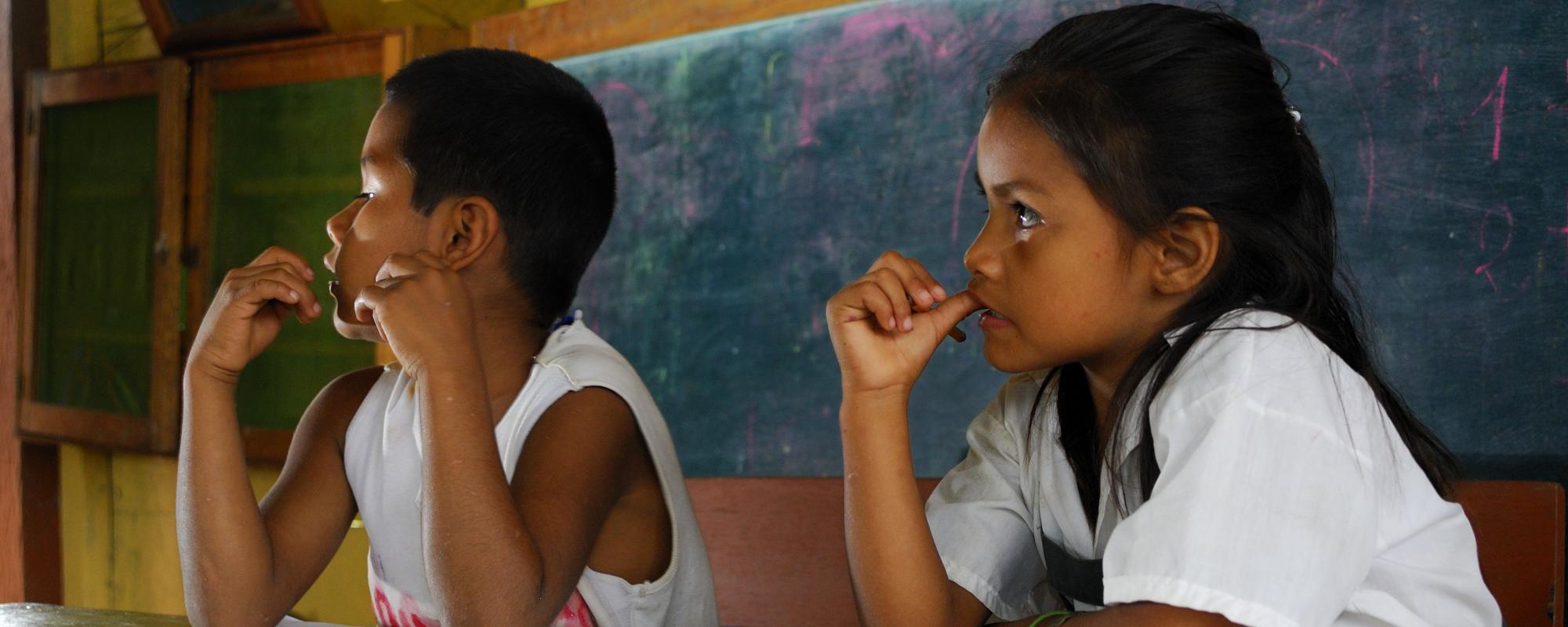
Violence affecting children and youth is a widespread global problem, and poorer children appear to be particularly affected. Young Lives provides one of the few sources of longitudinal data on violence affecting children, and it is able to generate high-quality research examining the causes and consequences of violence affecting children and youth.
Young Lives’ collaboration with UNICEF’s Office of Research – Innocenti, has led to significant impacts including contributing to the passing of a new law in Peru prohibiting physical and humiliating punishment of children in all settings.
In Peru, Young Lives findings demonstrating both the extent of violence against children and the negative impact on their learning and education outcomes, was key evidence in UNICEF’s Multi Country Study on the Drivers of Violence Affecting Children, which directly informed a change in the law to ban all forms of corporal punishment. Young Lives worked in partnership with UNICEF and NGO partners in Peru, in collaboration with government departments of health, education and social services to successfully lobby for legislative change.
Since the new law was passed in 2015, there has been a significant reduction in violence experienced by children at school in Peru. Data from Peru’s National Survey on Social Relations shows that in the four years before the pandemic (2015-2019), violence against school children fell by one-fifth, with an estimated 700,000 schoolchildren benefiting from reduced physical and psychological violence in the classroom, though levels of violence still remain very high.
While the change in the law in Peru has been pivotal, it is not sufficient to protect all children from violence; at the start of the pandemic rates remained incredibly high with over two thirds of children still experiencing violence at school.
Young Lives evidence suggests that a systematic and multi-sectoral approach is required to protect and support children at risk of violence, including better addressing the underlying drivers of violence, including social and cultural norms intersecting with factors related to poverty, inequality and gender.
After two years of interrupted education during the pandemic, further data collection is required to monitor children’s experiences of violence at school.
Violence affecting children and youth is a widespread global problem, and poorer children appear to be particularly affected. Young Lives provides one of the few sources of longitudinal data on violence affecting children, and it is able to generate high-quality research examining the causes and consequences of violence affecting children and youth.
Young Lives’ collaboration with UNICEF’s Office of Research – Innocenti, has led to significant impacts including contributing to the passing of a new law in Peru prohibiting physical and humiliating punishment of children in all settings.
In Peru, Young Lives findings demonstrating both the extent of violence against children and the negative impact on their learning and education outcomes, was key evidence in UNICEF’s Multi Country Study on the Drivers of Violence Affecting Children, which directly informed a change in the law to ban all forms of corporal punishment. Young Lives worked in partnership with UNICEF and NGO partners in Peru, in collaboration with government departments of health, education and social services to successfully lobby for legislative change.
Since the new law was passed in 2015, there has been a significant reduction in violence experienced by children at school in Peru. Data from Peru’s National Survey on Social Relations shows that in the four years before the pandemic (2015-2019), violence against school children fell by one-fifth, with an estimated 700,000 schoolchildren benefiting from reduced physical and psychological violence in the classroom, though levels of violence still remain very high.
While the change in the law in Peru has been pivotal, it is not sufficient to protect all children from violence; at the start of the pandemic rates remained incredibly high with over two thirds of children still experiencing violence at school.
Young Lives evidence suggests that a systematic and multi-sectoral approach is required to protect and support children at risk of violence, including better addressing the underlying drivers of violence, including social and cultural norms intersecting with factors related to poverty, inequality and gender.
After two years of interrupted education during the pandemic, further data collection is required to monitor children’s experiences of violence at school.

